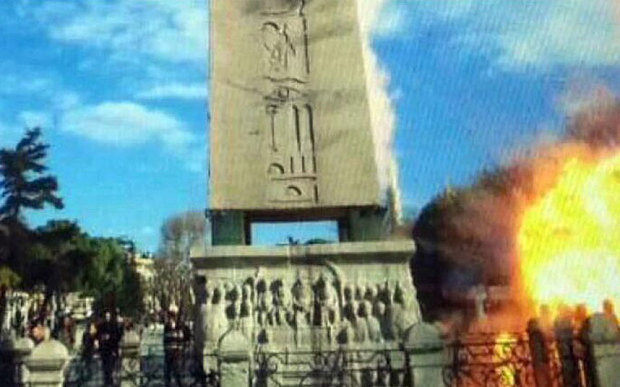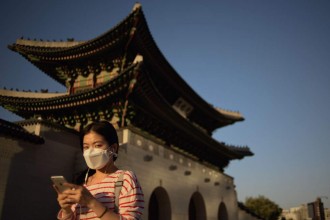Turkey’s close proximity to Syria and the war with ISIS creates increased vulnerabilities for tourists and citizens alike. The latest attack by a Syrian suicide bomber, aligned with ISIS, took the lives of 10 people and injured 15 people. ISIS will continue to attack Western targets and Turkey is a relatively easy mark.
ON JANUARY 12th Istanbul’s Sultanahmet district, an area popular with tourists, was rocked by a blast that killed 10 people and wounded 15, most of them believed to be German visitors. Ahmet Davutoglu, the prime minister, confirmed that the attack was carried out by a suicide bomber from Islamic State (IS). The blast will be another blow for Turkey’s already beleaguered tourism industry. It also highlights how vulnerable Turkey is to the turmoil that has engulfed the Middle East.
Such violence is becoming worryingly familiar in the country. “Turkey is the primary target for all terrorist organisations active in the region,” claimed Recep Tayyip Erdogan, the president, shortly after the blast. In October last year two suicide bombers, supposedly linked to Islamic State, killed 102 demonstrators in front of Ankara’s train station. Earlier attacks near the Syrian border in July and at a political rally in June had targeted supporters of the Kurdish movement. In December a little-known group, the Kurdistan Freedom Hawks, claimed responsibility for a mortar attack on Istanbul’s second-largest airport, which killed one cleaner and damaged several planes. The group warned that it intended to spread violence across Turkey in retaliation for the state policies toward Kurds.
In his speech Mr Erdogan also took the opportunity to slam more than 1,000 academics who signed a petition urging a ceasefire in south-east Turkey, an increasingly troubled part of the country after the collapse of peace talks between the government and the Kurdistan Workers’ Party (PKK) in July. Since December, security forces have stepped up military operations against Kurdish youth militias involved in urban warfare there. Using tanks, helicopters and troop reinforcements, they have imposed curfews in several districts. Tens of thousands of residents have left. Those who stayed are living in miserable circumstances. The Human Rights Foundation of Turkey, an NGO, estimate that around 80 people died in December. The curfew and a media crackdown prevent an independent assessment of the situation, says Emma Sinclair-Webb of Human Rights Watch, an advocacy group.
The blast tore through a crowd of visitors gathered near the Blue Mosque in the Sultanahmet district, a popular tourist area that is home to many of Istanbul’s Ottoman and Byzantine sites.
Turkish officials said the attack was carried out by a 28-year-old Syrian member of Isil. “We have determined that the perpetrator of the attack is a foreigner who is a member of Daesh,” said Ahmet Davutoğlu, Turkey’s prime minister.
The bomber is believed to have entered Turkey recently from Syria but was not on a watch list of suspected militants, the Turkish government said. Unconfirmed reports in Turkish media said he may have been born in Saudi Arabia.
Isil did not claim responsibility for the bombing but is believed to have been behind two other major terror attacks inside Turkey in the last six months.
Tuesday’s attack also killed a Peruvian man and wounded another 15 people, including nine Germans and two Peruvians, according to Turkish media.
Istanbul is one of the world’s most-visited cities and tourism accounts for around 12 per cent of Turkey’s GDP, raising fears the attack could cause serious economic damage.
The suicide bomber blew themselves up at around 10.20am near the Obelisk of Theodosius, an ancient Egyptian obelisk that is often used as a starting point for tour groups.






